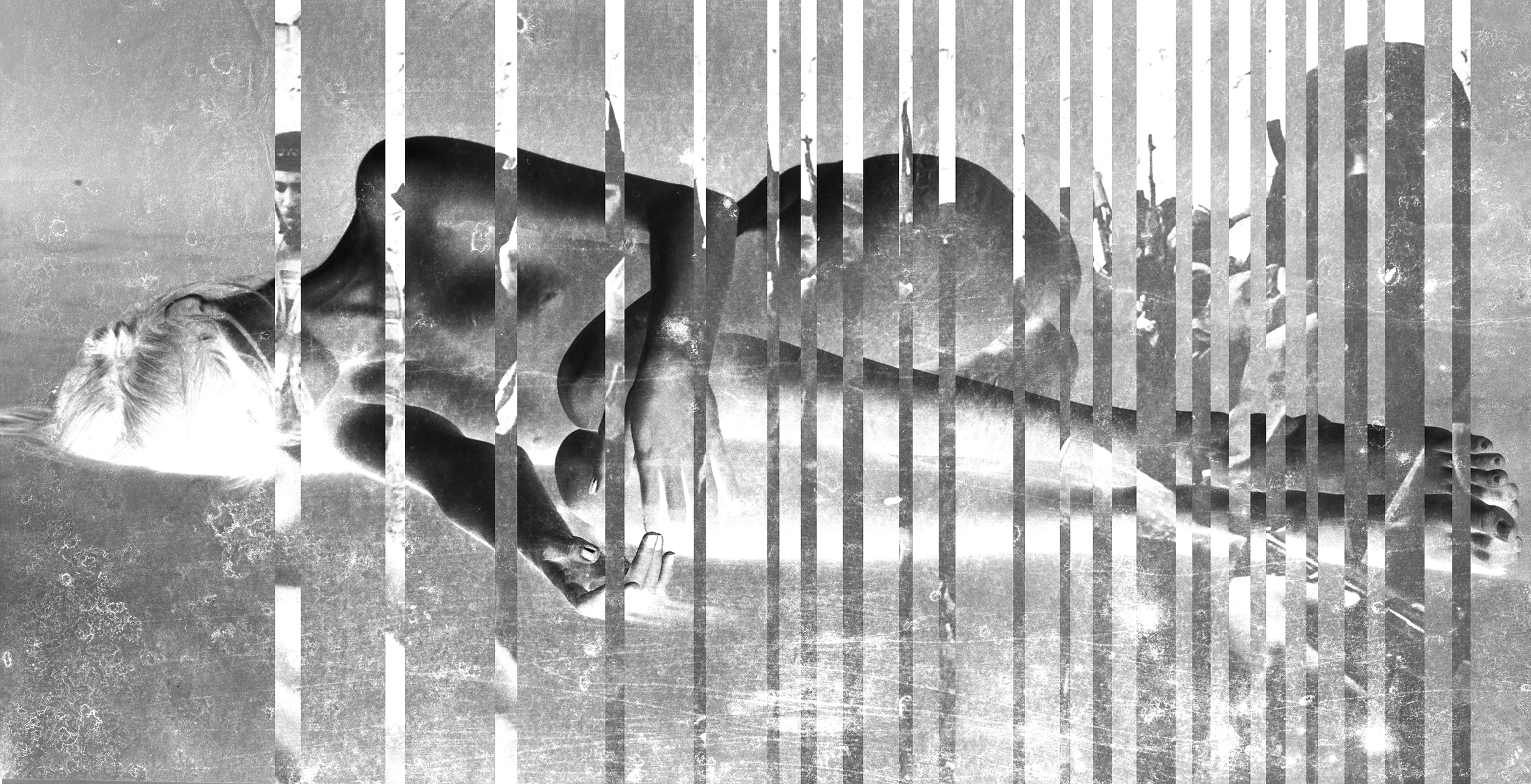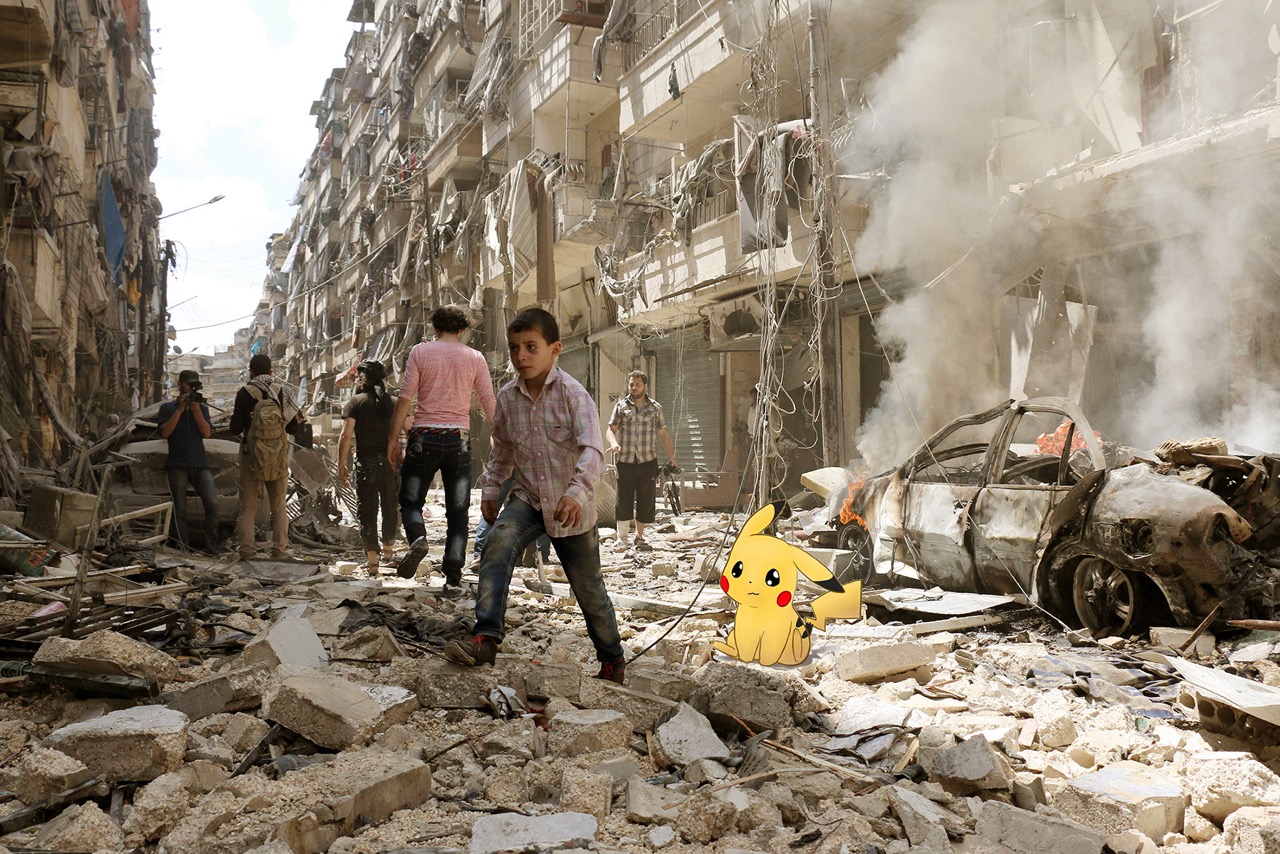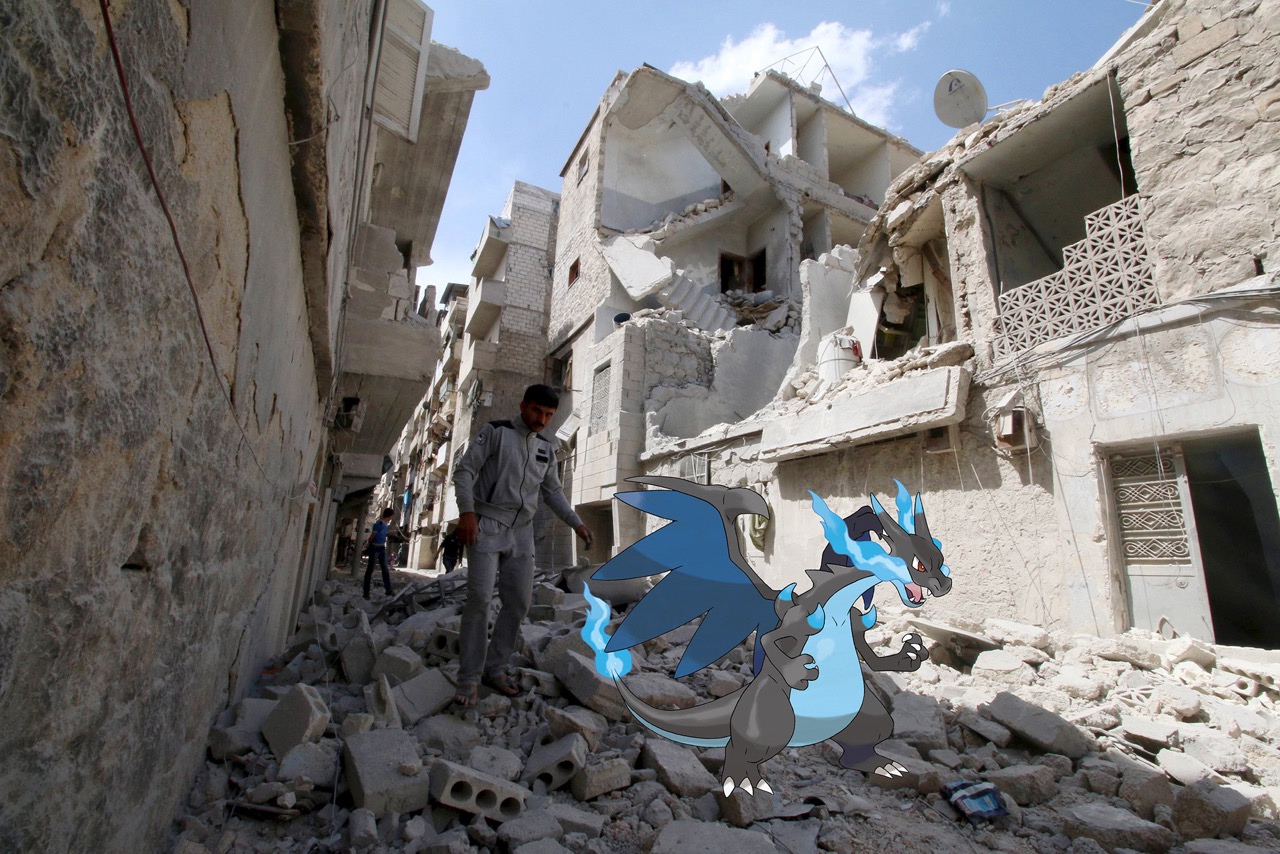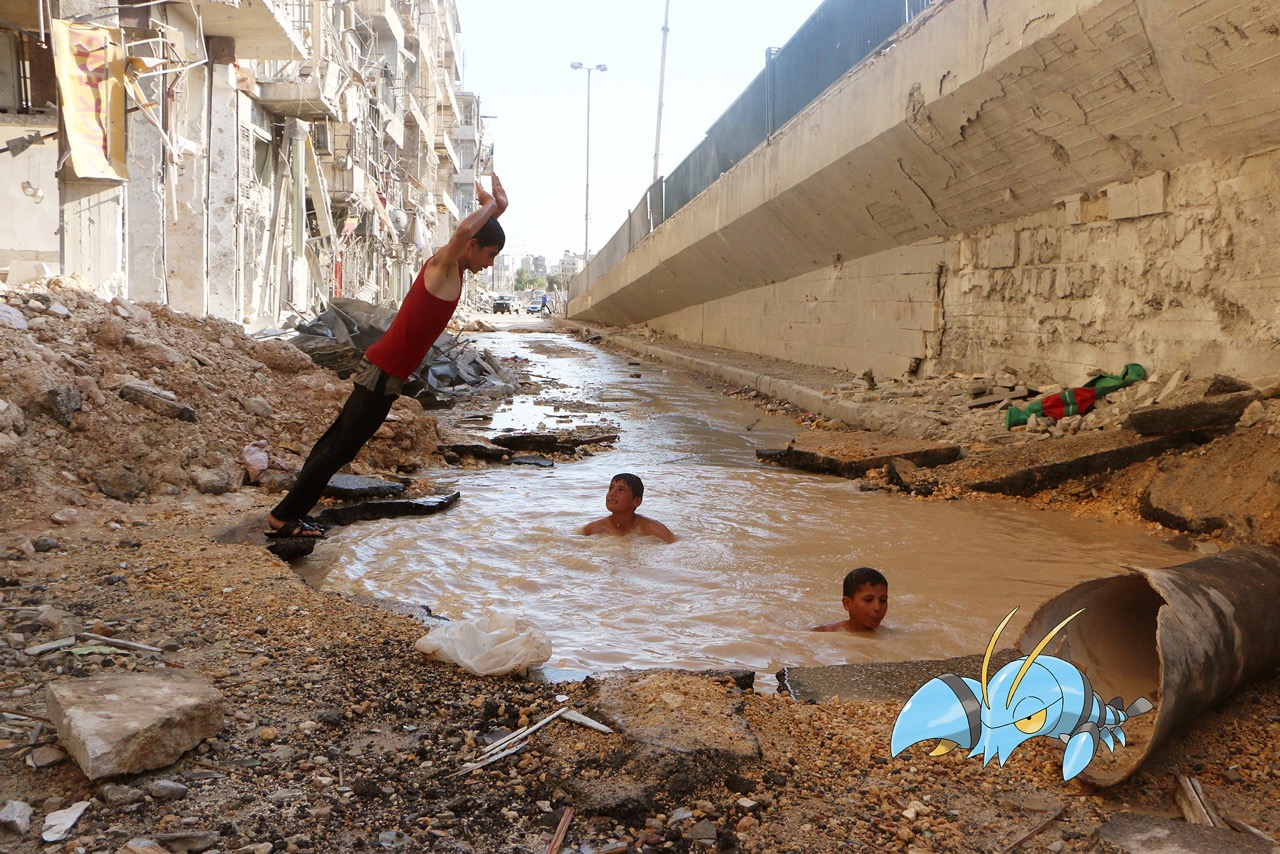“People got used to the war. You rarely read about it anymore. I am not blaming the people playing Pokemon Go, but I wish more people would be aware that, at the same time, children are dying elsewhere.”
What would it look like to play Pokemon Go on the war-torn streets of Aleppo?
This is what artist Khaled Akil asked himself recently. While Pokemon Go was trending worldwide, he couldn’t help but notice how the media forgot about the war in Syria. So he visualised his idea in the form of digital collages.
Khaled’s Pokemon series quickly went viral across the globe after he posted it online. He had successfully made use of a trending topic in western media to highlight the contrasting interests of the people living in war zones. Here, Khaled speaks to the IPF about his decision to take Pokemon Go into Syria through his artwork.
The Pokemon GO series
“For me it is a statement. I don’t want to write a status on Facebook, I wanted to visualise the discrepancy. It went viral because I translated visually what people were thinking already.”
Khaled is a Syrian photographer and artist, currently living in Istanbul. In 2012 he was forced to leave his home in Aleppo due to the war. Although Khaled grew up in an artistic environment, he chose to follow in his grandfather’s footsteps, studying law and political science in Lebanon before fully devoting himself to his passion for photography and fine art.
“People got used to the war,” said Khaled. “You rarely read about it anymore. I am not blaming the people playing Pokemon Go, but I wish more people would be aware that, at the same time, children are dying elsewhere. They do not and cannot care about Pokemons.”Khaled’s Pokemon Go series provided the world with a stark and relevant presentation of how the media informs us – and how accustomed we are to being entertained and told what kind of information to consume. He told the IPF that “Pokemon Part II” will be realised after he finishes working on his current projects.
“I believe it is my duty as an artist and a witness to emphasise what is going on in the world beyond what the media chooses to tell us, beyond what is trending. Witnessing demands a response. In my case, a creative response.”
A Woman Between: Documenting Iraqi sex slaves
Apart from his now world-famous Pokemon Go images, Khaled has also created another powerful series from Syria. His work, “A Woman Between…” shows more of his politically charged and socially critical mixed-media compositions, telling the story of the terrifying reality of Iraq sex slaves offered to jihadists — a devastating act Khaled doesn’t want the media and its audience to forget:
“We are experiencing a return to the dark ages everywhere with slavery and fundamentalist ideologies being exported across the globe. Violence is tearing Iraq and Syria, my country, apart.”
He continued: “Half the population is homeless and hundreds of thousands have been killed. While all have suffered, women have been broken, persecuted and raped. Those to blame are the fanatics and their allies, the international community.”

[Image credit: Khaled Akil]
Khaled is currently working on several new projects from his home in exile. He hopes to exhibit his work all over the world and return to Aleppo as soon as the war is over. He said that only then would he be able to work and travel freely again.
Until he can go home, he hopes to continue reminding us of the injustices through his art. His works are an unbiased, yet clever and compassionate, appealing to the people to independently inform themselves of the world we live in. It is a form of nonverbal enlightenment, urging us to think and act beyond commercial distraction and curated news.
For more information about Khaled Akil’s past and future projects, visit his website.





